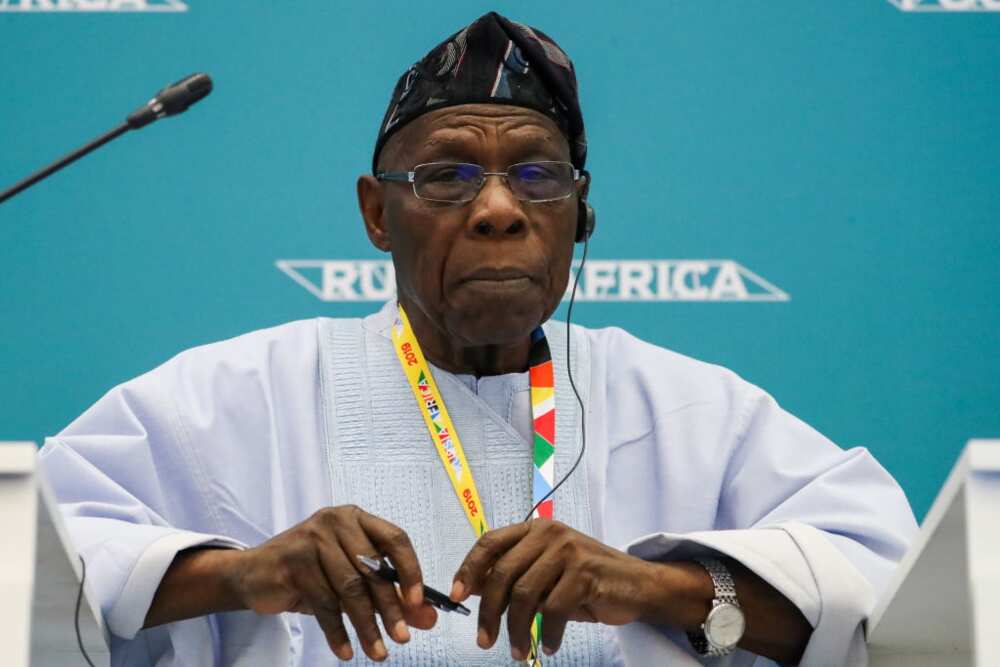Former President Muhammadu Buhari and Olusegun Obasanjo – Background, Political Career and an Overview of their Rule for 8years
Muhammadu Buhari is a Nigerian politician and military officer who has served as the President of Nigeria. Here is an overview of his background, political career, and presidency:
Background:
- Born: December 17, 1942, in Daura, Katsina State, Nigeria.
- Military Career: Buhari joined the Nigerian Army in 1961 and rose through the ranks. He became a major general after serving in various capacities, including as military governor of the northeastern state (now divided into Borno and Yobe States).
- 1975 Coup: Buhari played a key role in the military coup that ousted General Yakubu Gowon in 1975.
Military Rule (1983-1985):
- Coup and Presidency: In December 1983, Buhari led a coup that overthrew the civilian government of President Shehu Shagari. Buhari became the Head of State.
- War Against Indiscipline (WAI): His regime implemented policies aimed at combating corruption and indiscipline, including the War Against Indiscipline (WAI).
- Overthrow: Buhari’s government was itself overthrown in a coup in August 1985, leading to his temporary imprisonment.
Political Career:
- Failed Presidential Bids: Buhari ran for the presidency unsuccessfully in 2003, 2007, and 2011.
- APC Presidential Candidate (2015): In 2015, he emerged as the presidential candidate of the All Progressives Congress (APC), a coalition of opposition parties.
Presidency (2015-Present):
- Election (2015): Buhari won the 2015 presidential election, defeating the incumbent, Goodluck Jonathan.
- Campaign Focus: His campaign focused on anti-corruption, economic development, and security.
- Challenges: Buhari faced significant challenges, including an economic recession, insurgency by Boko Haram in the northeast, and ethno-religious tensions.
- Reelection (2019): Buhari was reelected in the 2019 presidential election.
- Security Challenges: His second term has been marked by ongoing security challenges, including Boko Haram insurgency, banditry, and communal conflicts.
Key Policies and Initiatives:
- Anti-Corruption: Buhari has emphasized the fight against corruption, with various anti-corruption initiatives launched.
- Economic Policies: His government has implemented economic policies aimed at diversifying the economy, improving infrastructure, and attracting foreign investment.
- Social Programs: Initiatives such as the Social Investment Program (SIP) were introduced to address poverty and unemployment.
Criticism and Controversies:
- Economic Challenges: Buhari’s handling of economic challenges, including the response to the recession, has faced criticism.
- Security Concerns: The persistence of security challenges, particularly in the form of insurgencies and communal conflicts, has led to criticism.
- Ethnic and Religious Tensions: Some critics have accused Buhari’s administration of not doing enough to address ethnic and religious tensions in the country.
Some Challenges under President Buhari Rule over Nigeria
- Poverty Increase:
- Under Buhari’s leadership, Nigeria reportedly became the world’s poverty capital, with around 133 million Nigerians living in abject poverty.
- Corruption Allegations:
- The outgoing Kano Governor, Umar Ganduje, a staunch ally of Buhari, was seen in a viral video allegedly accepting dollar kickbacks. Buhari defended him, suggesting the videos were doctored.
- Criticism from Political Allies:
- Even key political allies, such as Bola Tinubu, who is credited as a strategist behind APC’s 2015 victory, criticized the government and distanced himself from Buhari’s achievements during the campaign.
- Public Discontent:
- Some APC leaders expressed disappointment with Buhari’s performance, stating that only a person who is “deaf and dumb” would claim Nigeria is doing well under his leadership. There was a sense that Buhari had squandered the goodwill he received in 2014 to 2015.
- Cabinet Delay and Appointments:
- Buhari’s delay in announcing a cabinet earned him the nickname “Baba Go Slow.” The cabinet was criticized for including individuals considered as has-beens and geriatric party stalwarts.
- Incompetent Appointments:
- Some of Buhari’s appointments were deemed less than ideal, and concerns were raised about the competence of individuals appointed to key roles in the government.
- Economic Challenges:
- The economy faced challenges, including missteps and inaction that led to two recessions in five years. The naira lost significant value against the dollar, and inflation reached an 18-year high.
- Debt and Economic Impact:
- Nigeria’s debt reached a record of about $150 billion, requiring a large portion of the country’s revenue (96 percent) to service these obligations. The economic impact of these factors raised concerns among analysts.
Muhammadu Buhari’s presidency has been marked by efforts to address corruption, improve the economy, and tackle security challenges. However, the country has faced ongoing challenges that have led to debates and discussions about the effectiveness of his leadership.
Olusegun Obasanjo
Olusegun Obasanjo is a Nigerian statesman and military officer who played a significant role in the country’s political history. Born on March 5, 1937, in Abeokuta, Nigeria, he served as Nigeria’s president in two non-consecutive terms.
- Military Career:
Obasanjo began his military career in the Nigerian Army and rose through the ranks. He played a key role in the Nigerian Civil War (1967-1970) and became a major figure in the military government that followed. - First Presidential Term:
Obasanjo first became Nigeria’s president in 1999, marking the end of many years of military rule in the country. He was elected as a civilian president, serving from 1999 to 2007. During his tenure, he focused on economic reforms, anti-corruption measures, and infrastructure development. - Economic Reforms:
Obasanjo implemented economic policies aimed at addressing Nigeria’s economic challenges. His administration pursued privatization, deregulation, and other reforms to stimulate economic growth. - Anti-Corruption Measures:
He established the Economic and Financial Crimes Commission (EFCC) to tackle corruption in Nigeria. This was part of his commitment to combating corruption, a pervasive issue in the country. - Infrastructure Development:
Obasanjo’s administration also invested in infrastructure projects, including roads and telecommunications, to improve the country’s overall development. - Second Presidential Term Controversy:
After leaving office in 2007, Obasanjo became involved in politics and was a key figure in the controversial third-term agenda, which sought to amend the constitution to allow him to run for a third term. However, this attempt was unsuccessful.

Controversies Surrounding Former President Olusegun Obasanjo
- Dramatic Exit from PDP:
On February 16, Obasanjo publicly left the Peoples’ Democratic Party (PDP), tearing his party membership card in what the party considered an insulting manner. - Third Term Attempt:
Obasanjo faced controversy over an alleged “Third Term Agenda” to modify the constitution for a third presidential term. Although he denied masterminding it, he acknowledged awareness and claimed governors encouraged the idea. - Letter to President Jonathan:
In 2013, Obasanjo wrote an explosive 18-page letter to President Goodluck Jonathan, outlining perceived shortcomings, causing widespread reactions. - Iyabo’s Letter to Her Father:
Following Obasanjo’s letter, his daughter, Senator Iyabo Obasanjo, allegedly wrote a letter denouncing him. The letter’s authenticity was disputed, with Obasanjo claiming it was coerced by President Jonathan’s administration. - Accusation from Son Gbenga:
In 2008, Obasanjo’s son Gbenga accused him of having a sexual relationship with Gbenga’s estranged wife. This revelation emerged during Gbenga’s divorce proceedings. - Odi Massacre:
The Odi massacre occurred in 1999 during Obasanjo’s presidency, where the Nigerian military reportedly killed nearly 2500 civilians in Odi, Bayelsa state. Buildings were destroyed, and allegations suggest Obasanjo ordered the attack, leading to accusations of human rights abuses and genocide.
Later Years:
Despite controversies, Obasanjo remains a prominent figure in Nigerian politics. He has been vocal on various national issues, including governance, corruption, and social development. He has also been involved in diplomatic efforts and mediation in regional conflicts.
Olusegun Obasanjo’s contributions to Nigeria have left a lasting impact on the country’s political landscape, and his legacy, like any political figure, is subject to varying opinions.


